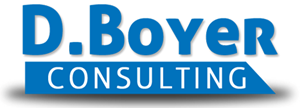Business is mostly conducted via email or phone communications.
Office hours 10:00 a.m. to 6:00 p.m, Mon. - Thurs., and 10:00 a.m. to 2:00 p.m. on Fridays.
SEND EMAIL INQUIRIES DIRECTLY TO:
Dawn.Boyer@me.com
Business is mostly conducted via email or phone communications.
Office hours 10:00 a.m. to 6:00 p.m, Mon. - Thurs., and 10:00 a.m. to 2:00 p.m. on Fridays.
SEND EMAIL INQUIRIES DIRECTLY TO:
Dawn.Boyer@me.com
Business is mostly conducted via email or phone communications.
Office hours 10:00 a.m. to 6:00 p.m, Mon. - Thurs., and 10:00 a.m. to 2:00 p.m. on Fridays.
SEND EMAIL INQUIRIES DIRECTLY TO:
Dawn.Boyer@me.com
Job Fairs – Still Useful To Attend – Part 2
November 15th, 2011 by Dawn Boyer
Are attending job fairs still useful for employers and job seekers in this electronic age of resume posting? (Part Two – Advantages for Job Seekers)
Part one reported why employers attend job fairs, and this article will explain why job seekers should attend, even though many think they are a time waster.
Job fairs are common recruiting tools. Some job seekers travel from other cities to attend, or they drive to Washington, DC or the “technology triangles” in some states for what they think may be a good venue. Many job seekers complain a job fair wasn’t up to snuff, they wasted their money, employers didn’t have any jobs, no one accepted resumes, or wanted to interview them. Walking in, job seekers should have zero expectations, but prepare for positive actions you can take to make it worth your while, regardless of the number or type of employees and their interest or number of current job openings.
What to take to a job fair? Hard copy resumes for those few companies decide to accept resumes in that form. Make sure cell and/or home phone numbers and an email address is at the top. If you can obtain some business cards (with a concise list of capabilities on the back of the card and your website URL for your resume), provide those at each booth. Dress for success at these events – do not walk in the door in sloppy clothes, leisurewear, or beach get-up.
Actions to take at a job fair to get that return on investment and make yourself memorable:
- Speakers and special presentations for free to attendees – soak up the knowledge for those golden nuggets of information
- Visit every booth – regardless of whether you have an interest in or haven’t heard of a company
- Talk to and listen to each employer representative – ask if the company has subsidiaries/partners not be at the job fair, but who may have job openings
- Recognize many employer representatives at job fairs are non-HR or non-recruiters sent to (wo)man the booth and may know little about the job openings
- Ask for names within the company; and if you know anyone in the company – ask about them, their health, how you can get in touch with them
- Ask representatives to glance over your resume for any advice they can offer if they won’t take the physical hard copy at the job fair event (most prescribe online posting)
- Get a business card from everyone in the room; you’ll need those after you leave
- Practice your elevator speech – you have 60 seconds to make yourself memorable but do not read your resume to the reps – most don’t have time for interviews
- Research every company by picking up company brochures; talk to other attendees – if they note they are leaving XYZ company – there’s going to be a new job opening
- Find out if the company is looking for candidates for now or further down the road; are contracts ending or beginning; are the company ranks expanding or shrinking?
- Don’t expect any interviews at job fairs – usually there are too few reps manning the booth to afford quiet, to-the-side, mini-interviews
- Soak up the give-away goodies offered at the job fair – if for nothing else, to walk away with something useful (flashlights, yellow highlighters, refrigerator magnet clips, thumb drives, etc.) – but don’t grab and run – make sure you do spend time with rep, ask politely what they are giving away, and thank them for the item
Make the time you spend at job fairs memorable, useful, and work for the return on investment (ROI) and you will gain that new job sooner rather than later.
Copyright, 2005, Dawn D. Boyer
Readers Comments
Job Fairs – Still Useful To Attend – Part 2
November 15th, 2011 by Dawn Boyer
Are attending job fairs still useful for employers and job seekers in this electronic age of resume posting? (Part Two – Advantages for Job Seekers)
Part one reported why employers attend job fairs, and this article will explain why job seekers should attend, even though many think they are a time waster.
Job fairs are common recruiting tools. Some job seekers travel from other cities to attend, or they drive to Washington, DC or the “technology triangles” in some states for what they think may be a good venue. Many job seekers complain a job fair wasn’t up to snuff, they wasted their money, employers didn’t have any jobs, no one accepted resumes, or wanted to interview them. Walking in, job seekers should have zero expectations, but prepare for positive actions you can take to make it worth your while, regardless of the number or type of employees and their interest or number of current job openings.
What to take to a job fair? Hard copy resumes for those few companies decide to accept resumes in that form. Make sure cell and/or home phone numbers and an email address is at the top. If you can obtain some business cards (with a concise list of capabilities on the back of the card and your website URL for your resume), provide those at each booth. Dress for success at these events – do not walk in the door in sloppy clothes, leisurewear, or beach get-up.
Actions to take at a job fair to get that return on investment and make yourself memorable:
- Speakers and special presentations for free to attendees – soak up the knowledge for those golden nuggets of information
- Visit every booth – regardless of whether you have an interest in or haven’t heard of a company
- Talk to and listen to each employer representative – ask if the company has subsidiaries/partners not be at the job fair, but who may have job openings
- Recognize many employer representatives at job fairs are non-HR or non-recruiters sent to (wo)man the booth and may know little about the job openings
- Ask for names within the company; and if you know anyone in the company – ask about them, their health, how you can get in touch with them
- Ask representatives to glance over your resume for any advice they can offer if they won’t take the physical hard copy at the job fair event (most prescribe online posting)
- Get a business card from everyone in the room; you’ll need those after you leave
- Practice your elevator speech – you have 60 seconds to make yourself memorable but do not read your resume to the reps – most don’t have time for interviews
- Research every company by picking up company brochures; talk to other attendees – if they note they are leaving XYZ company – there’s going to be a new job opening
- Find out if the company is looking for candidates for now or further down the road; are contracts ending or beginning; are the company ranks expanding or shrinking?
- Don’t expect any interviews at job fairs – usually there are too few reps manning the booth to afford quiet, to-the-side, mini-interviews
- Soak up the give-away goodies offered at the job fair – if for nothing else, to walk away with something useful (flashlights, yellow highlighters, refrigerator magnet clips, thumb drives, etc.) – but don’t grab and run – make sure you do spend time with rep, ask politely what they are giving away, and thank them for the item
Make the time you spend at job fairs memorable, useful, and work for the return on investment (ROI) and you will gain that new job sooner rather than later.
Copyright, 2005, Dawn D. Boyer













